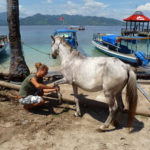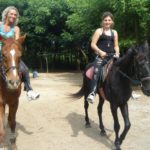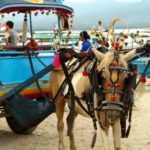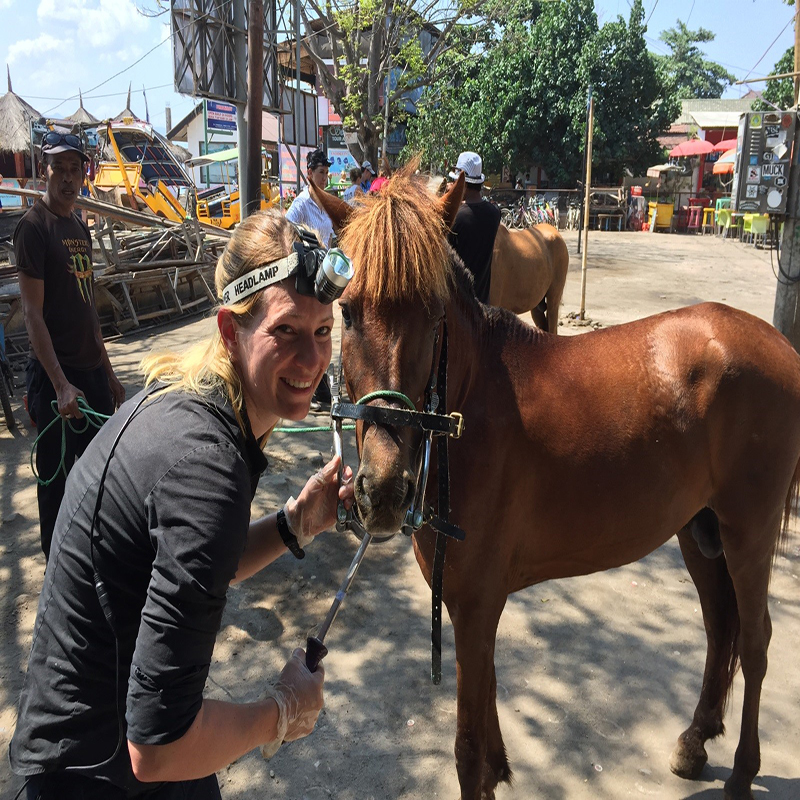Horses of Gili
Horses and horse clinics
Providing local support with good animal welfare for working horses of the Gili Islands.
Horses of Gili is a not for profit orgnization founded by residents of the largest island, Gili Trawangan. They operate beneath the NGO Gili Eco Trust. Together they are striving to help provide the best living conditions and standards of care for these horses as possible while still understanding that the locals rely on the horses for income and that they are a tradition handed down through generations.
 They provide free veterinary clinics several times a year. They also provide donated bits and bridles, padding for harnesses, and boots to help protect the horses from accidental injury.
They provide free veterinary clinics several times a year. They also provide donated bits and bridles, padding for harnesses, and boots to help protect the horses from accidental injury.
One of the primary goals is education regarding basic diet and care, including not giving salty water, and keeping the horses feet trimmed and properly shod.
This is a long term project with many obstacles in the way such as lack of funds, cultural barriers, language barriers and a remote, difficult to get to location. All of our funds are donated either through the Gili Eco Trust which collects donations of 50.000 IDR per diver on the islands or through fund raisers.
The majority of the horses and ponies that live here work and are nearly all stallions. This is a cultural thing since the lcoals beleive that the males are better for work and the females have babies.
The horses are mostly bred in Bali and Lombok, although some come from farther away islands such as Bima, and there are a very few imported European horses as well.
 A few horses on each island are used for riding, either by private owners or for rides offered to tourists on the beach.
A few horses on each island are used for riding, either by private owners or for rides offered to tourists on the beach.
The horses stay in stables which are made of wood, bamboo and/or occasionally concrete. There isn’t any pasture or real paddocks available on the islands. Many of the horses are simply tied to trees or poles due to the lack of proper housing being available.
They are fed a mixed quality fresh grass hay imported form Lombok and imported rice bran mixed with water. Most are now offered fresh water which is quite expensive to purchase, and this is why a few still drink salty or brackish water, and that in the past nearly all drank this. (Many horses used to be lost to kidney disease).
 These are not really the best diets for horses long term and can lead to vitamin and calcium deficiencies. To combat this we import limited qaunities of a pelleted horse feed, and vitamin and mineral supplements which are sold at a low cost to the owners.
These are not really the best diets for horses long term and can lead to vitamin and calcium deficiencies. To combat this we import limited qaunities of a pelleted horse feed, and vitamin and mineral supplements which are sold at a low cost to the owners.
They are also given vitamin injections to every horse that comes to the clincis. Everyone is welcome to take their horse to the clinic but still not everyone makes their way over there…
If you for some reason need to use a cidomo please and very pleaes choose a horse that looks in a good condition. Always support the horse owners that support their horses.
Have fun and be safe!
